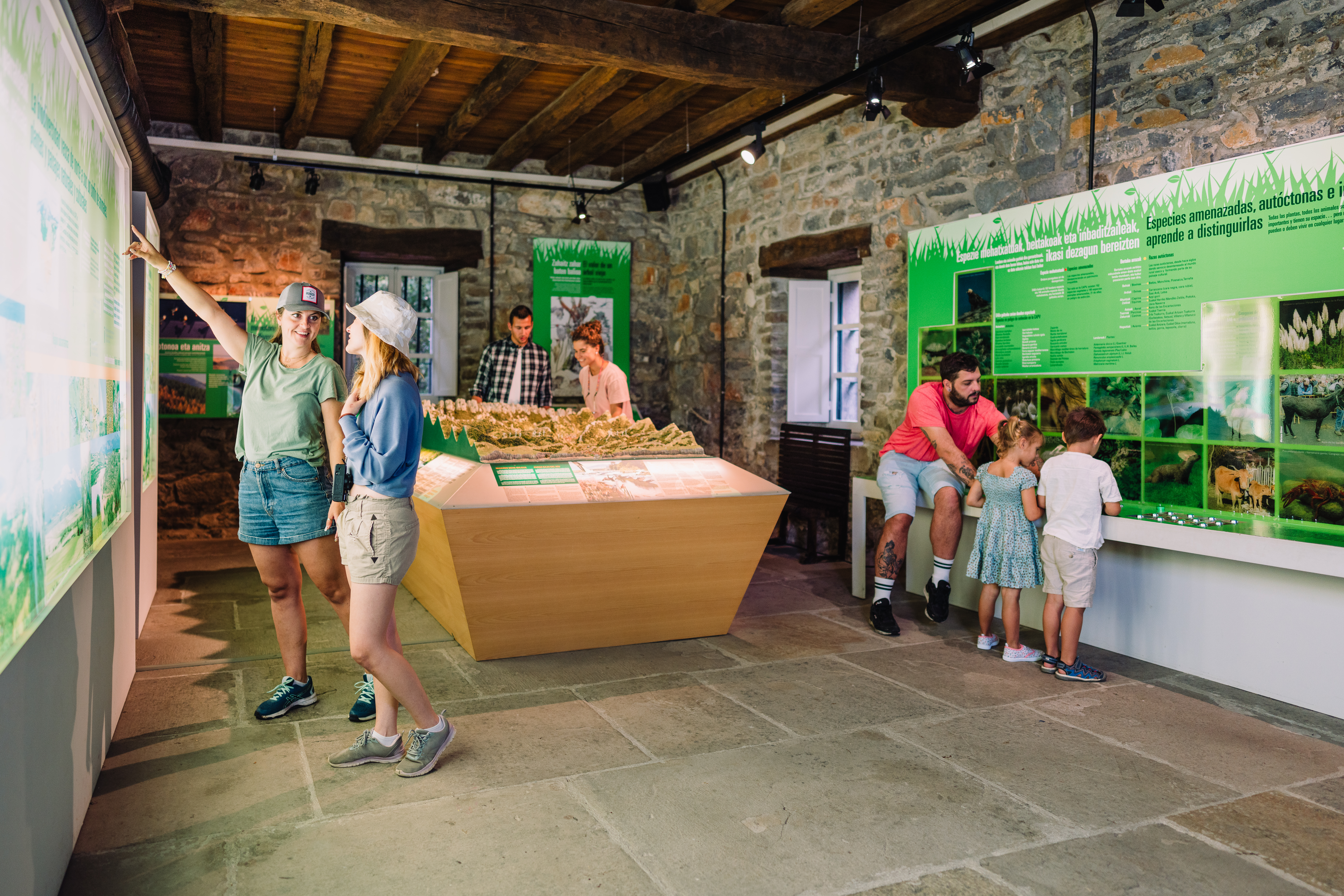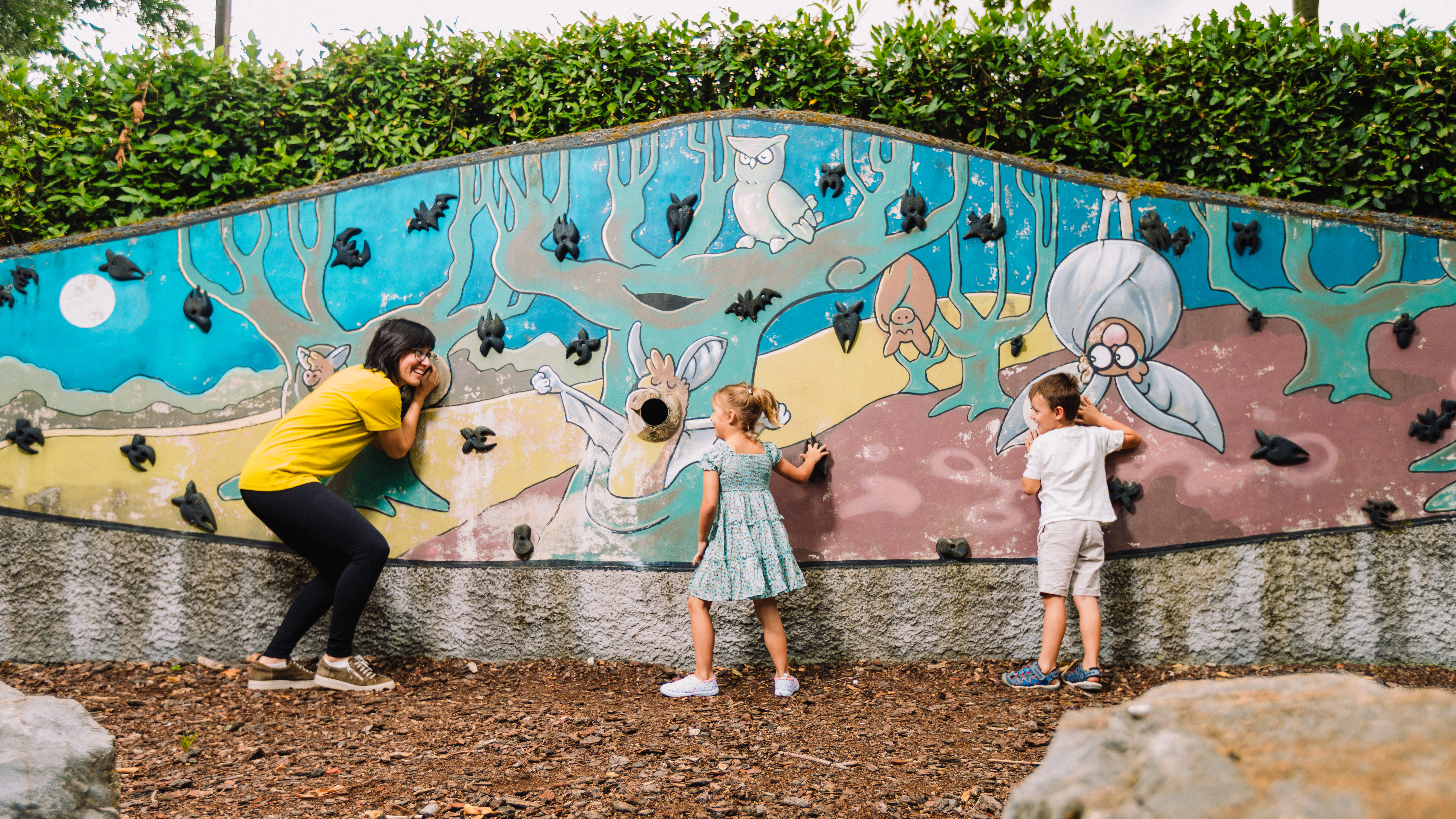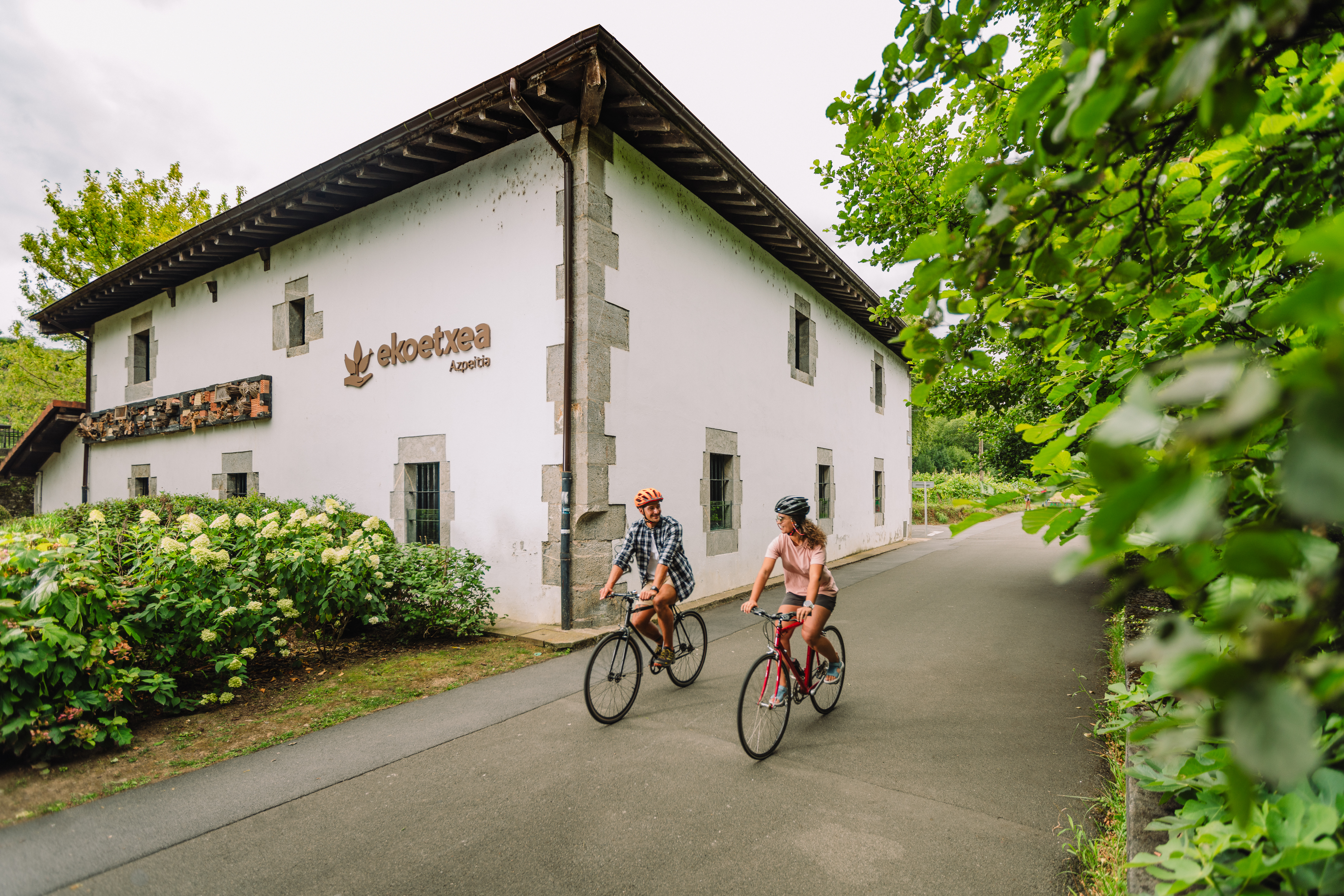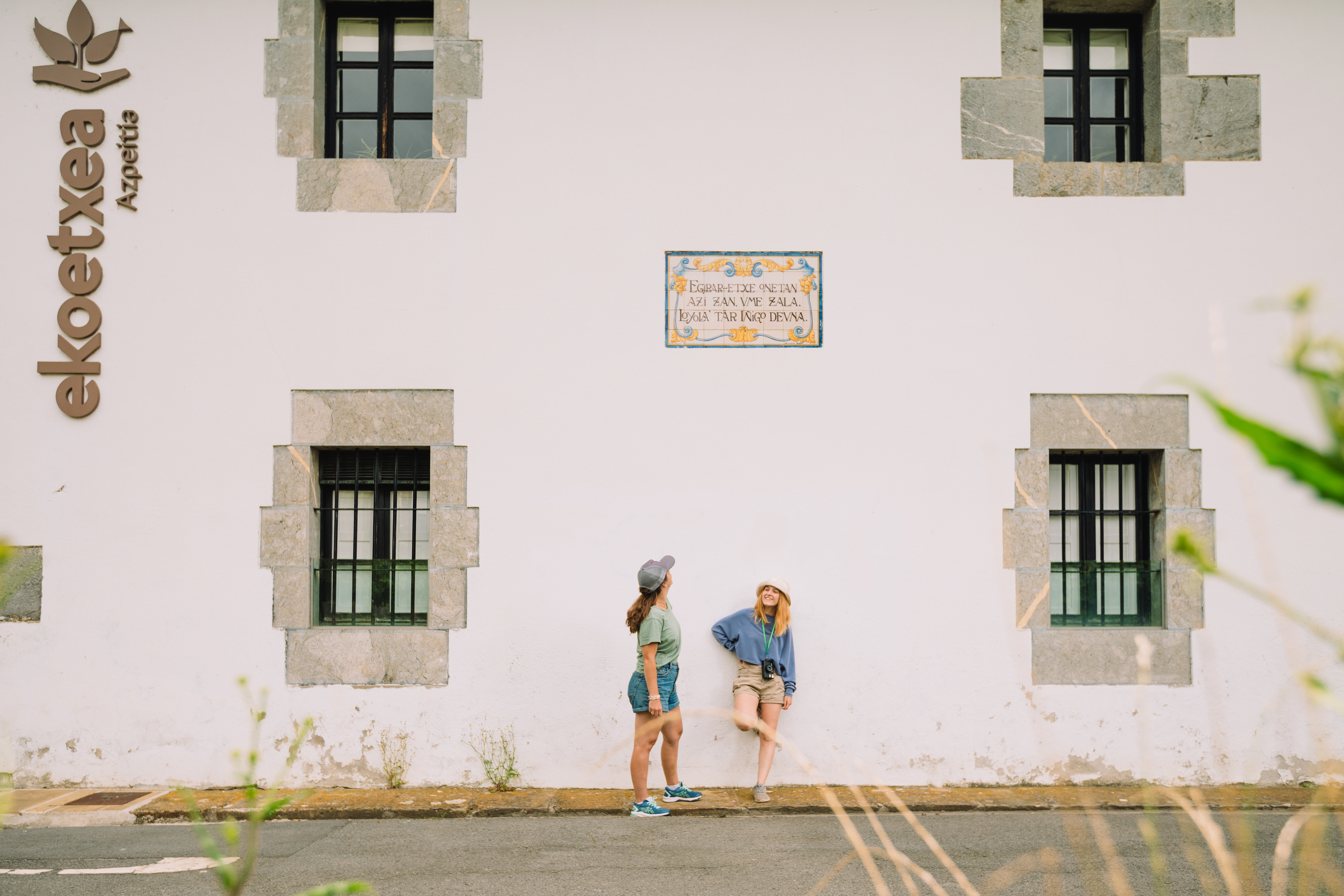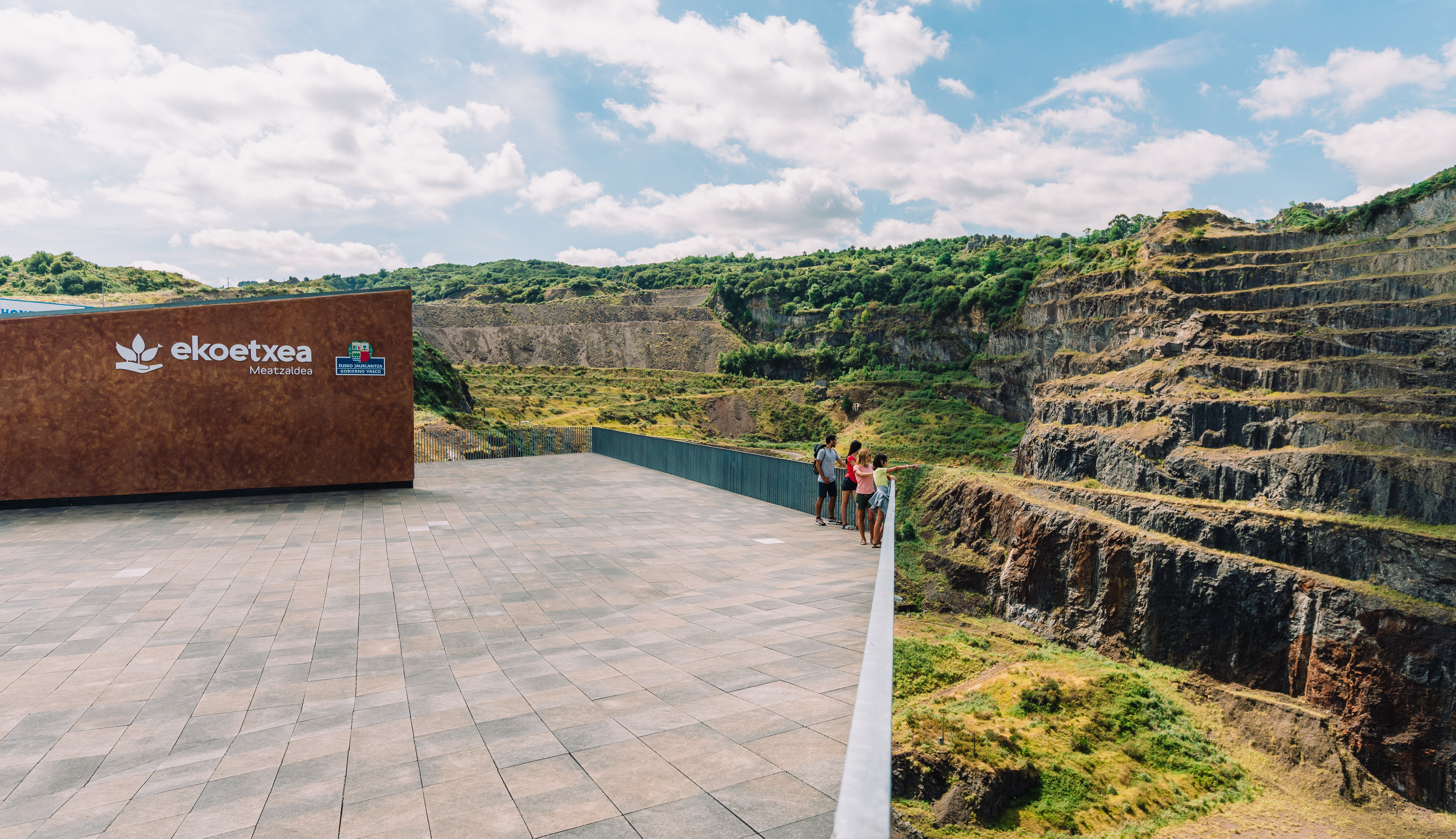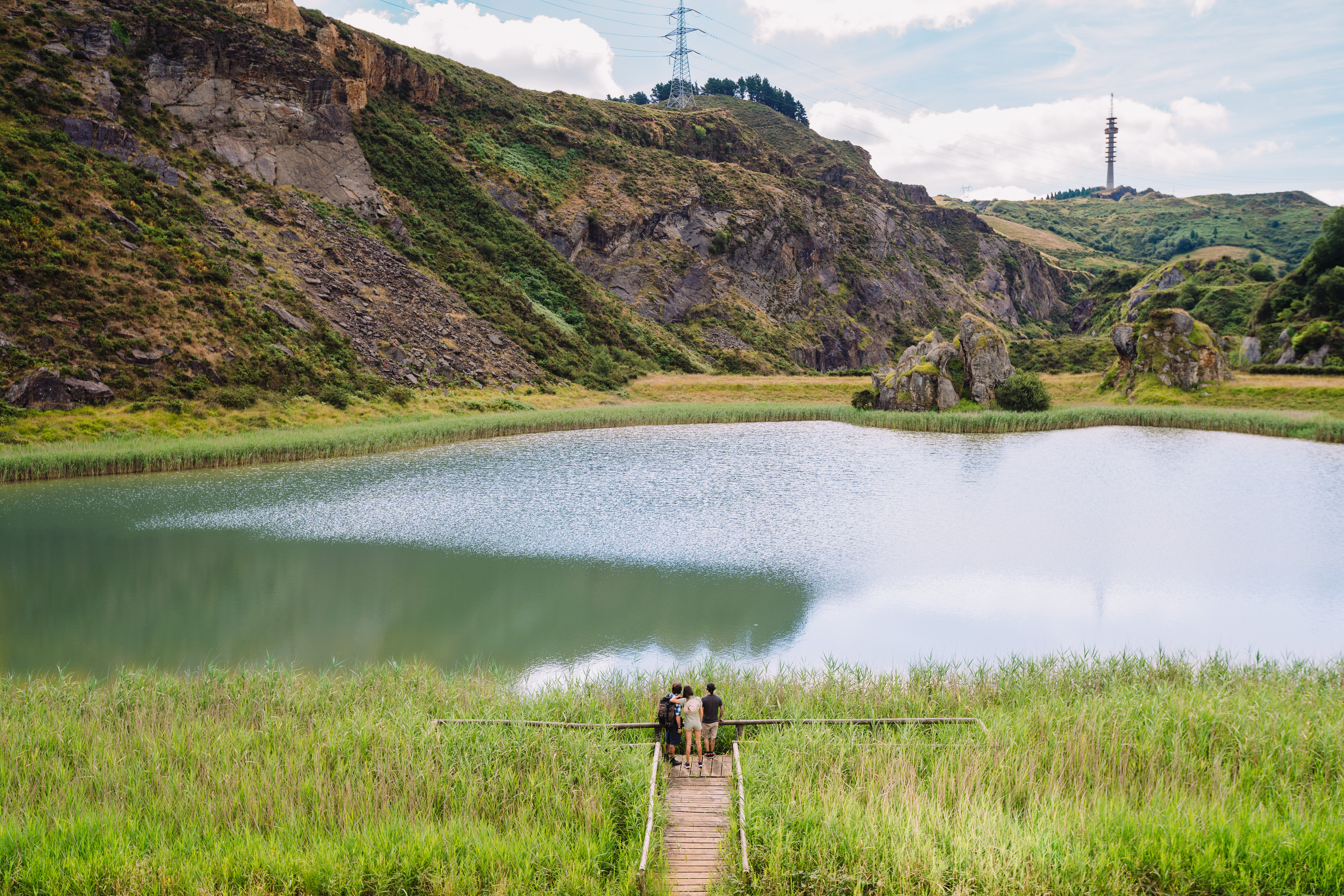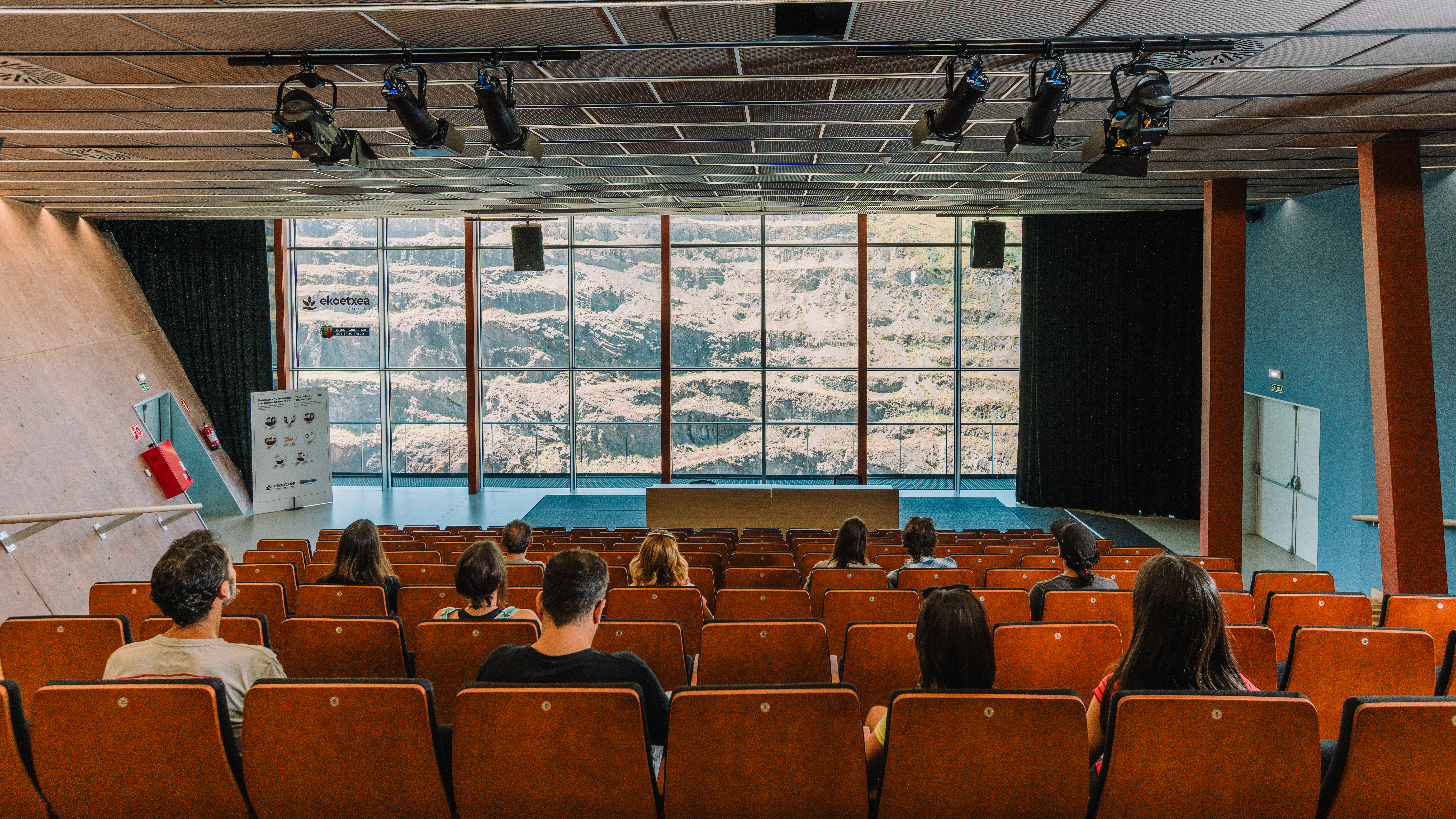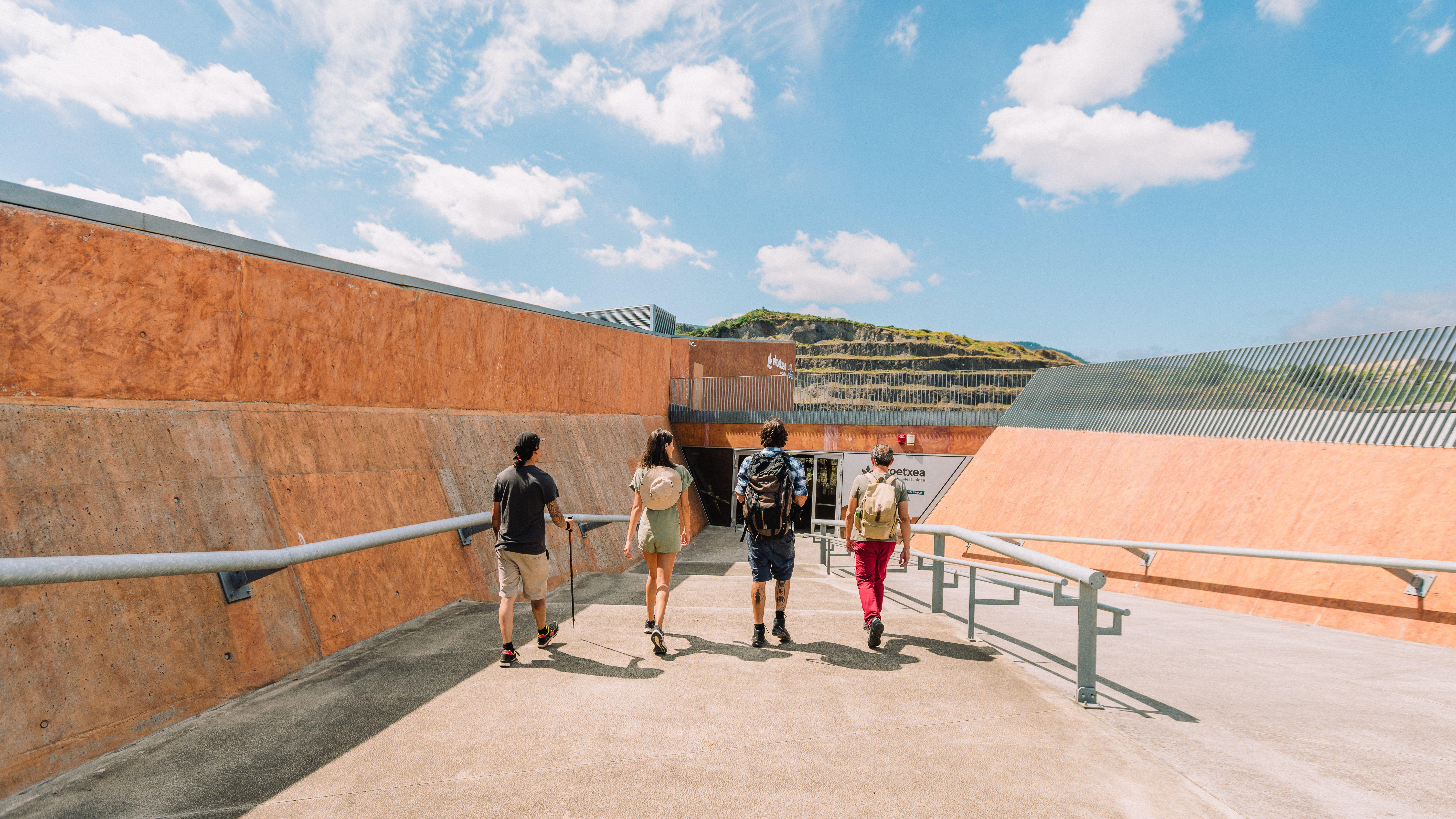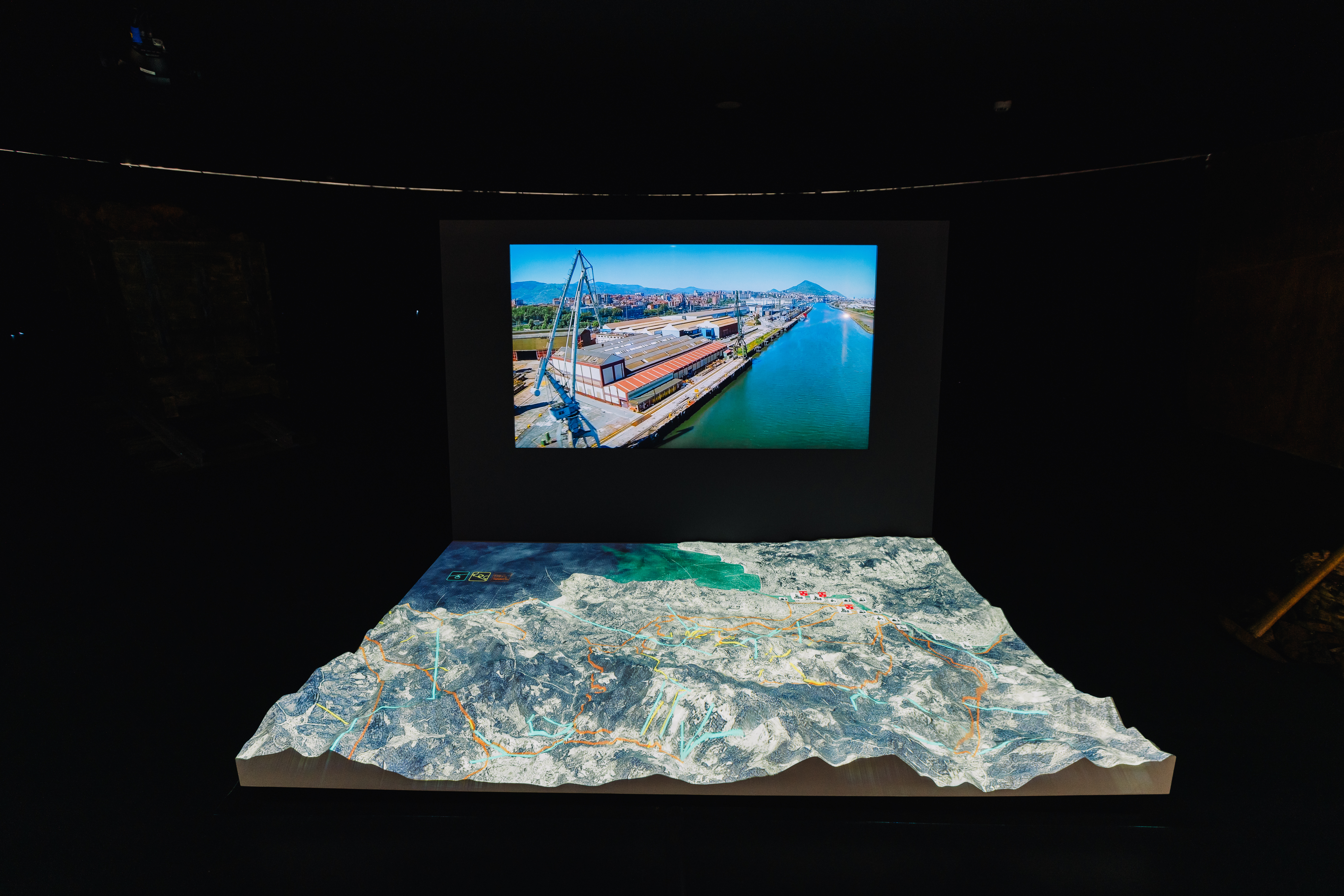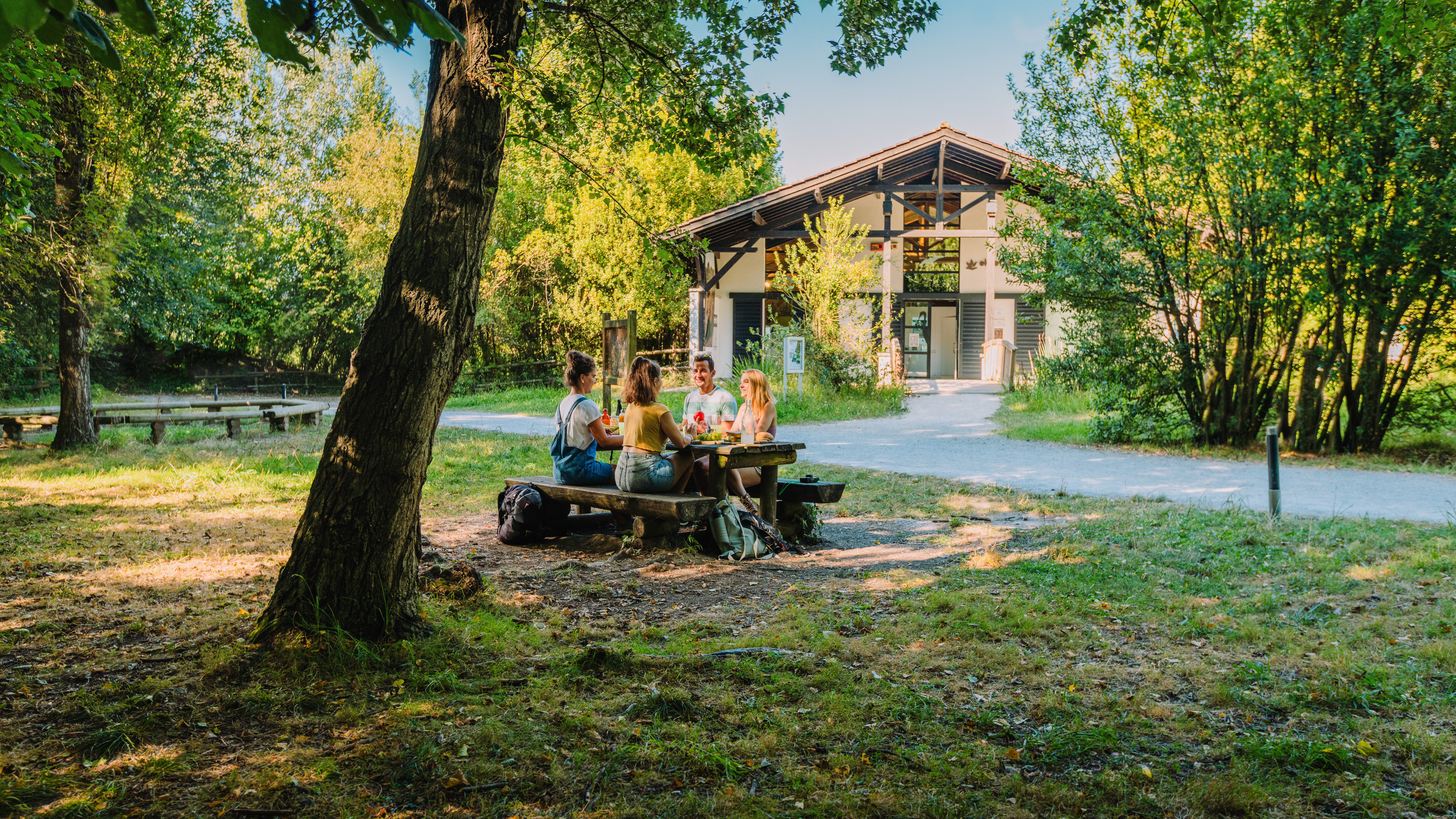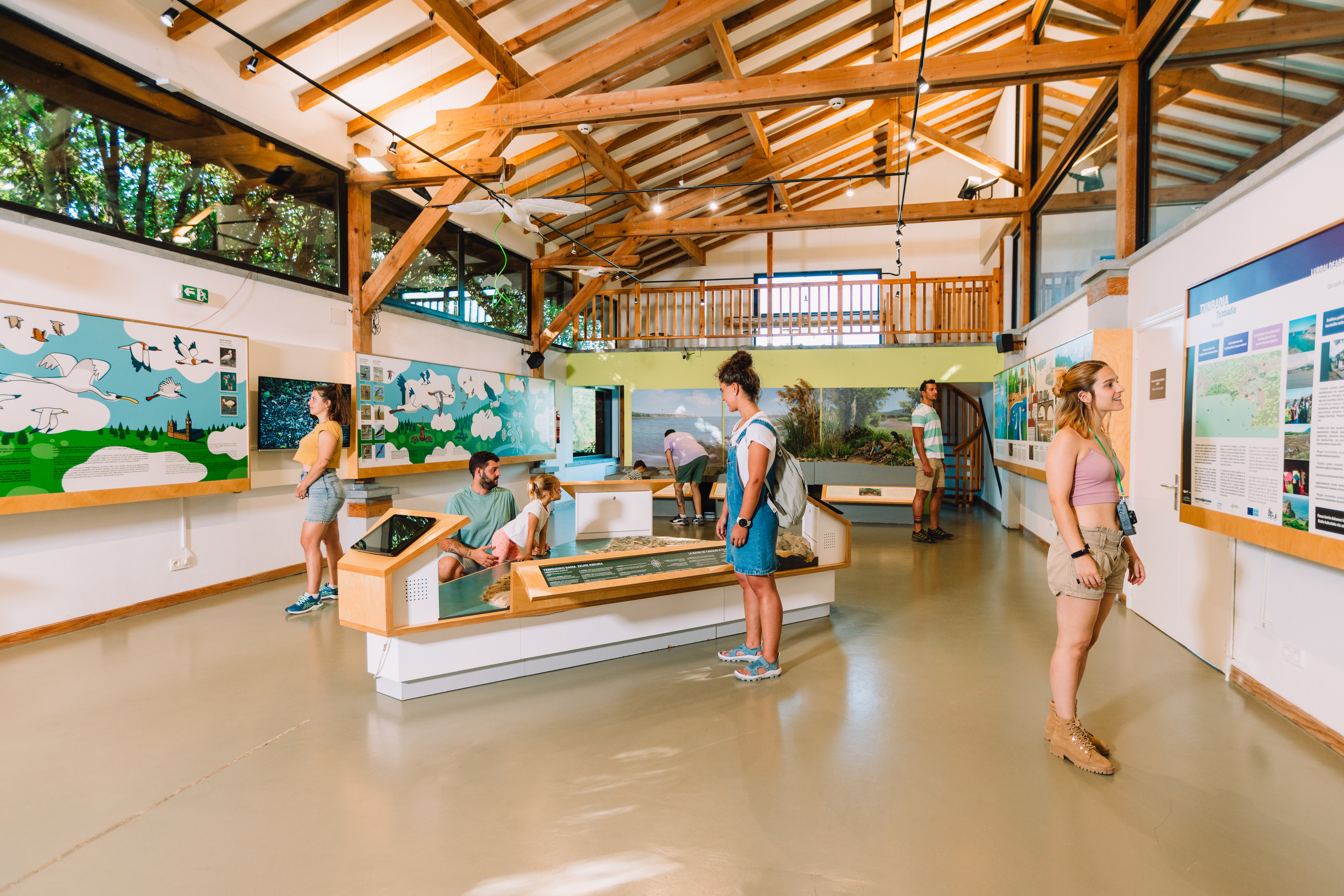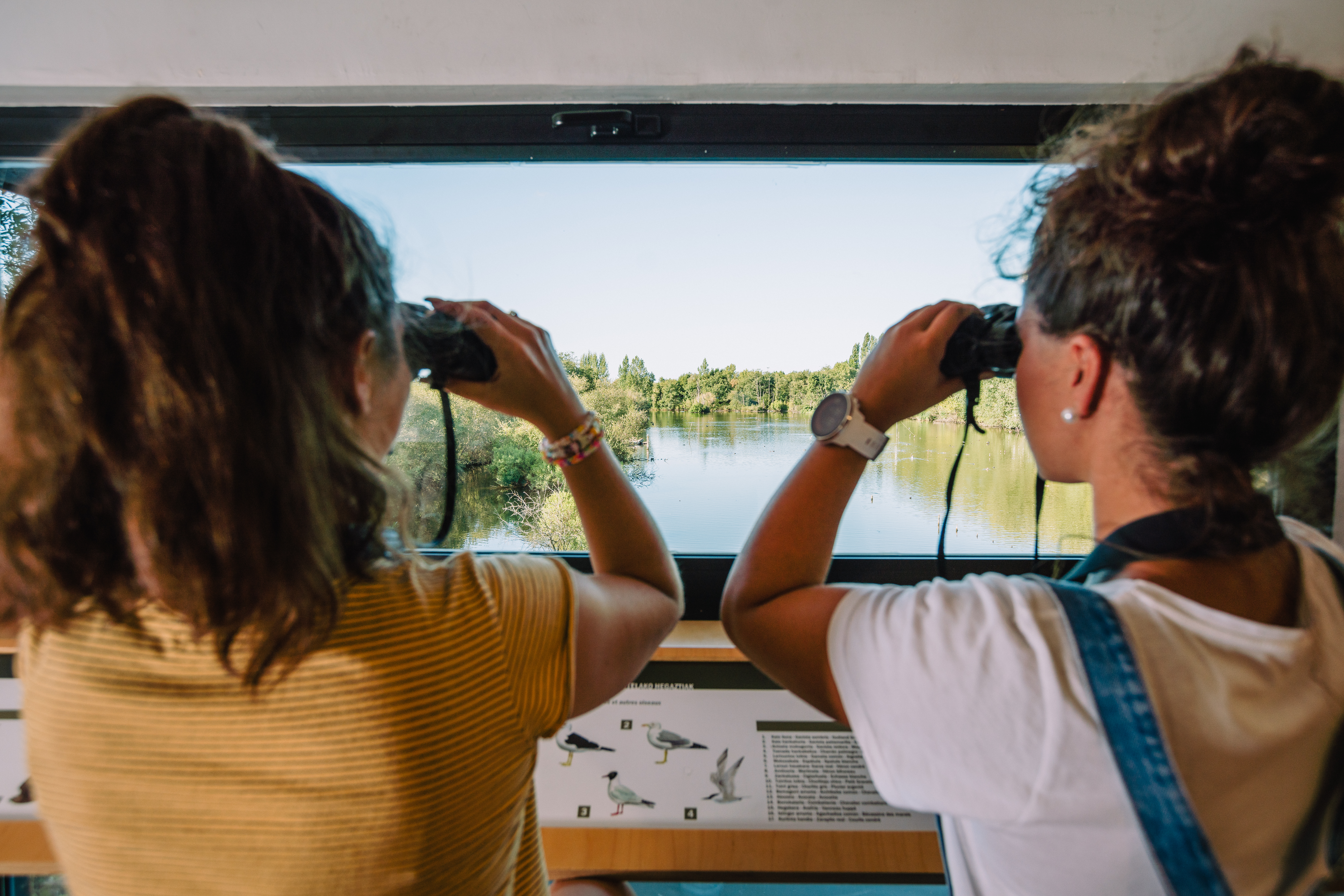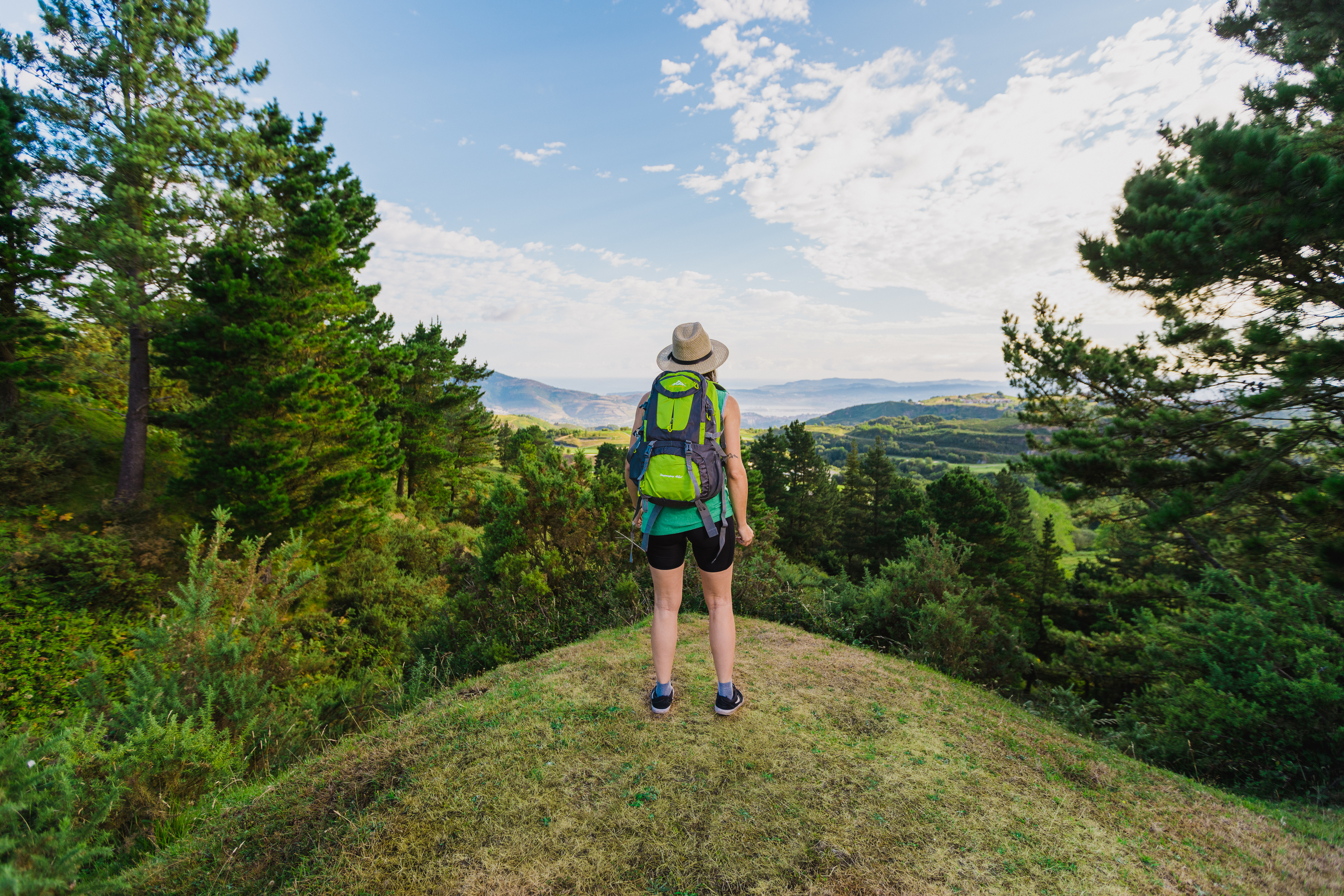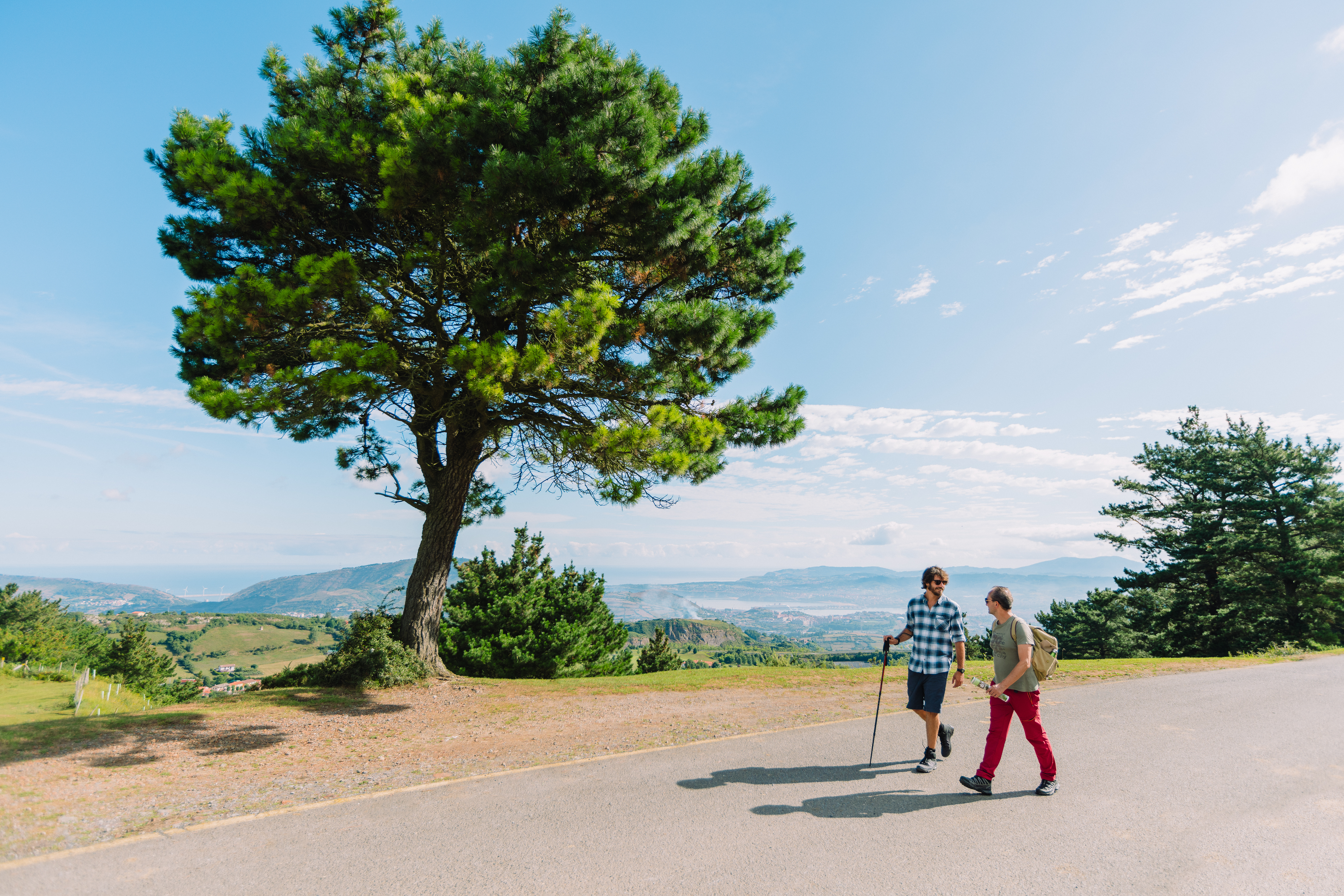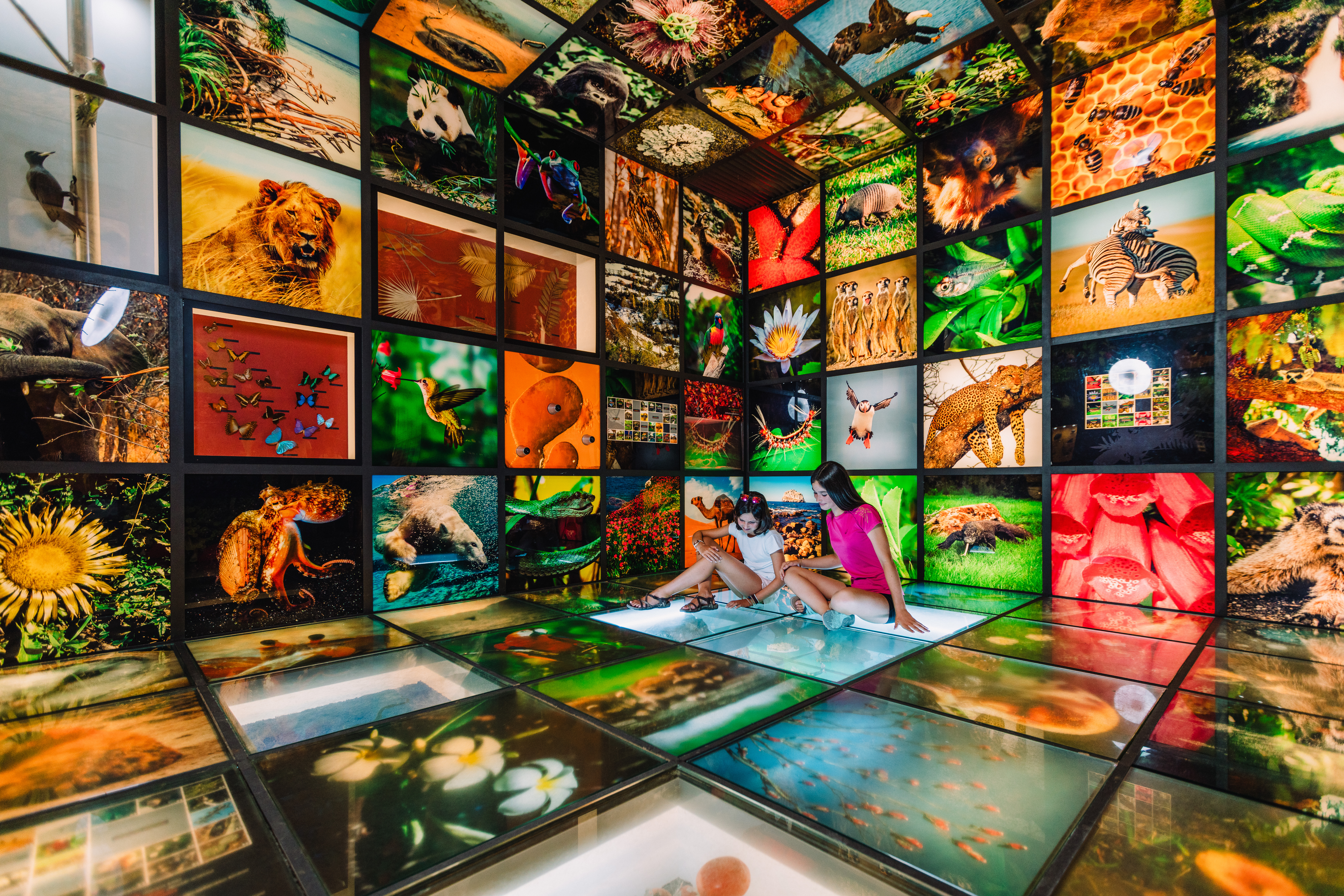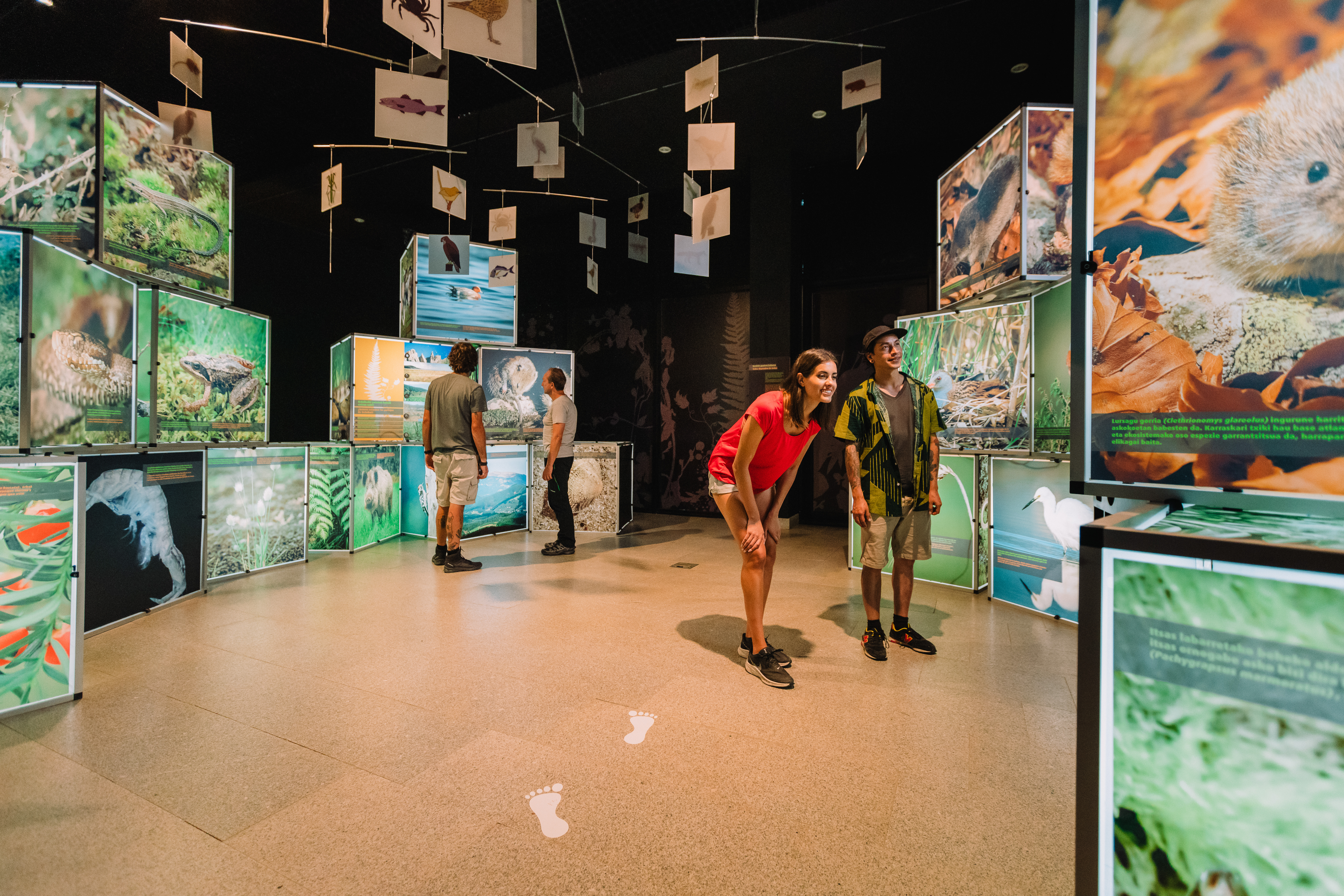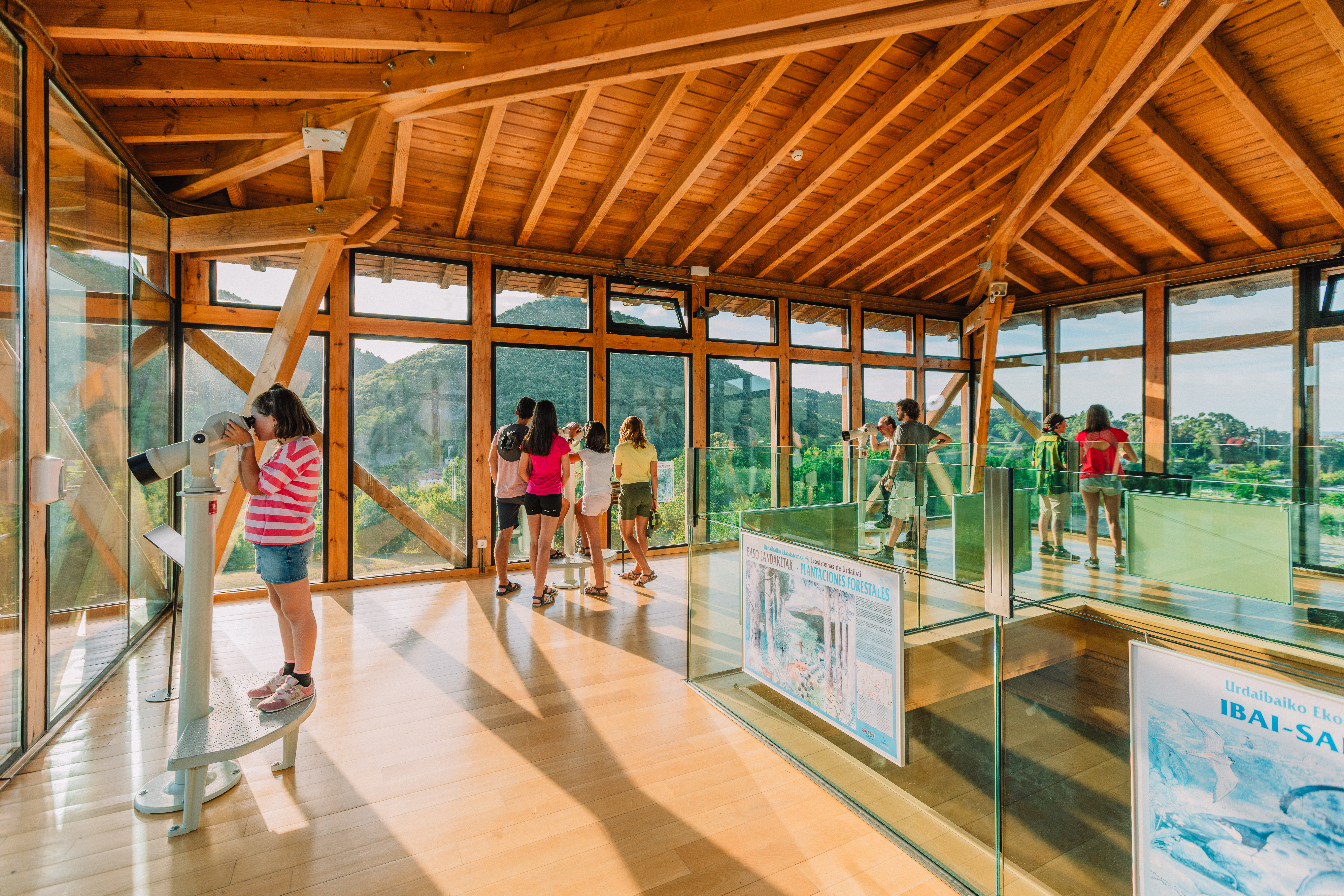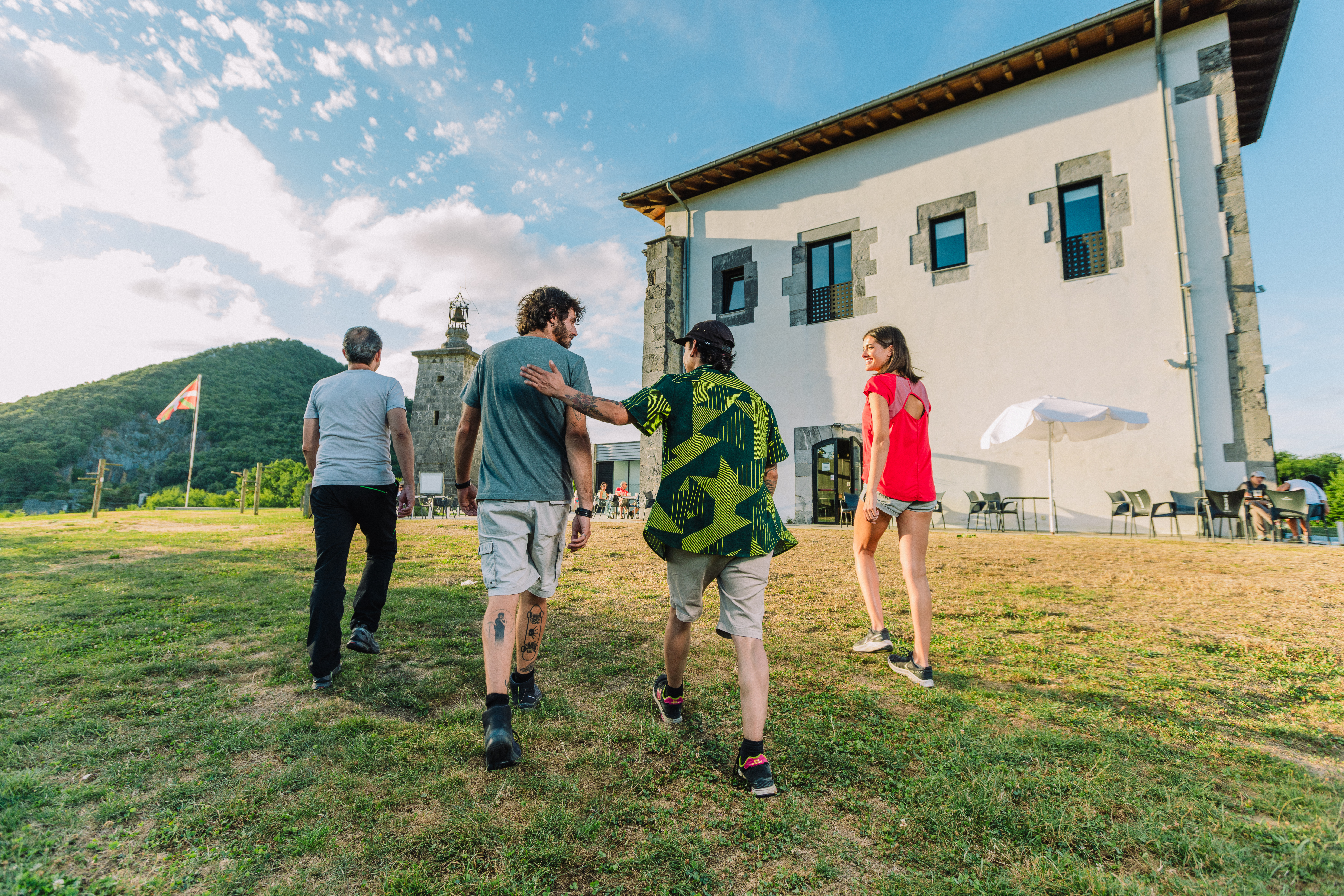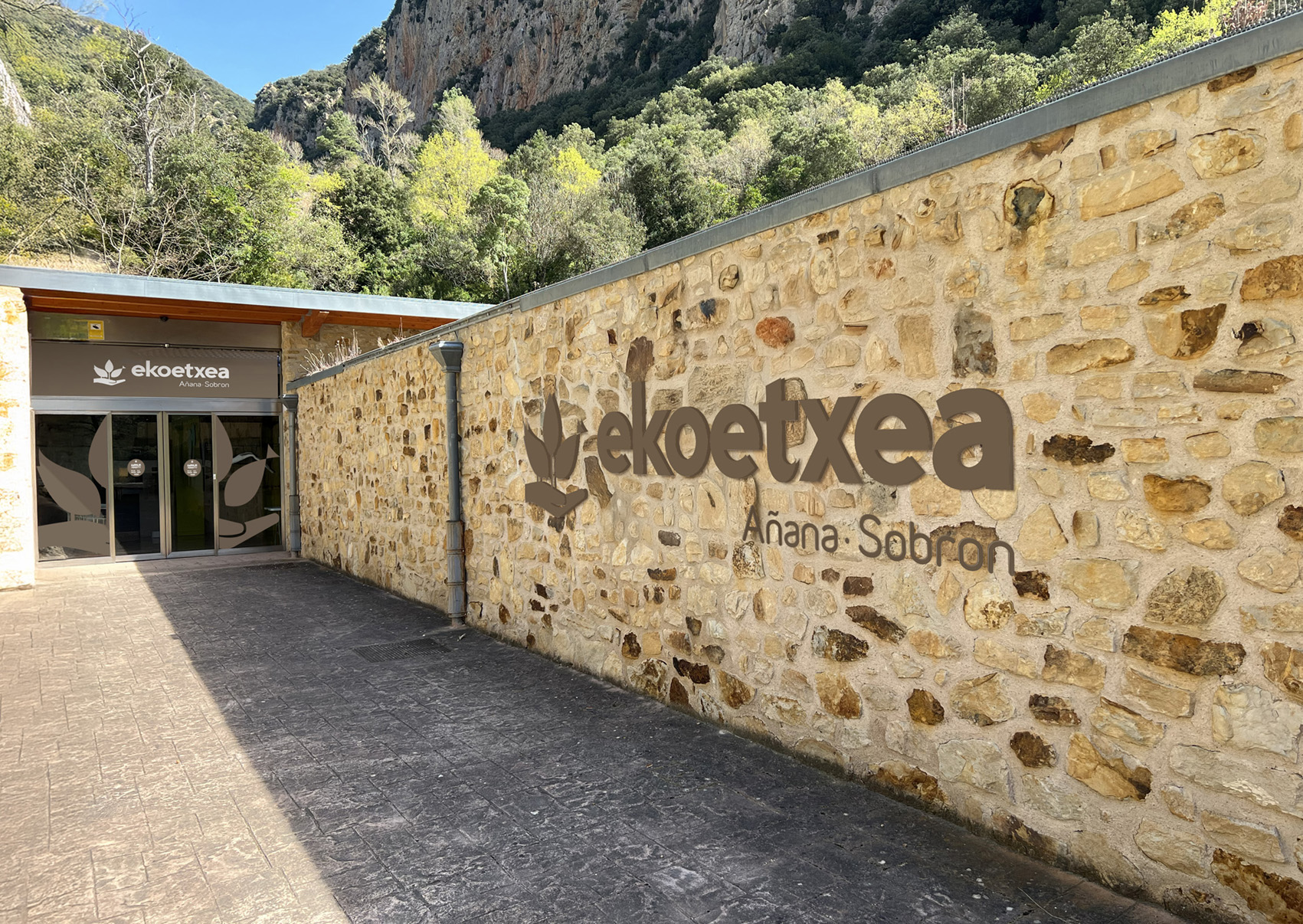Regaining a sense of belonging
Ekoetxea: Reframing Environmental Action
Ekoetxea: A Model for Community-Led Environmental Education, Sustainability, and Climate Action
Ekoetxea is a pioneering network of sustainability centres transforming environmental education into action. Blending science, digital innovation and community engagement, it empowers citizens to adopt sustainable lifestyles, co-create climate solutions and reconnect with nature. Through immersive experiences, behavioural insights and participatory governance, it fosters a sense of belonging, reinforcing the bond with Basque traditions and heritage while advancing a regenerative future.
Spain
Regional
Basque Country
It addresses urban-rural linkages
It refers to a physical transformation of the built environment (hard investment)
Yes
2024-12-31
Yes
Urban Klima 2050 - LIFE 18 IPC 000001
No
No
As a representative of an organisation
Ekoetxea is a network of environmental centres in the Basque Country that has recently undergone a systemic transformation, shifting from traditional interpretation centres to community-driven sustainability hubs. The project’s aim is to engage citizens, educational institutions, businesses, and policymakers in sustainable action, behavioural change, and systemic innovation to restore a sense of belonging through place-based environmental stewardship.
The initiative targets local citizens and families, encouraging their active participation in sustainability efforts. It also integrates environmental education into the curricula of schools, with the goal of instilling long-term behavioural change. Policymakers, local institutions, and businesses are engaged to promote co-creation, governance improvements, and circular economy practices.
Ekoetxea’s objectives include creating inclusive hubs where citizens actively contribute to sustainability, empowering behavioural change through both experiential learning and digital tools. The project also seeks to develop a participatory governance model that supports resource flows and aligns with climate neutrality goals through local regenerative practices.
The impact of Ekoetxea is characterised by the strengthening of community ties, supported by participatory governance. It offers a hybrid learning ecosystem, combining digital and physical engagement to address climate action and sustainability. Ekoetxea’s alignment with the principles of the NEB is demonstrated through its commitment to sustainability, nature-based solutions, and inclusivity, ensuring access for all, including marginalized groups.
By addressing territorial challenges such as biodiversity loss and industrial pollution, Ekoetxea bridges the urban-rural divide and embeds sustainability into local governance. It fosters long-term resilience and a just transition, demonstrating a model of community-led climate action that can be replicated across Europe.
The initiative targets local citizens and families, encouraging their active participation in sustainability efforts. It also integrates environmental education into the curricula of schools, with the goal of instilling long-term behavioural change. Policymakers, local institutions, and businesses are engaged to promote co-creation, governance improvements, and circular economy practices.
Ekoetxea’s objectives include creating inclusive hubs where citizens actively contribute to sustainability, empowering behavioural change through both experiential learning and digital tools. The project also seeks to develop a participatory governance model that supports resource flows and aligns with climate neutrality goals through local regenerative practices.
The impact of Ekoetxea is characterised by the strengthening of community ties, supported by participatory governance. It offers a hybrid learning ecosystem, combining digital and physical engagement to address climate action and sustainability. Ekoetxea’s alignment with the principles of the NEB is demonstrated through its commitment to sustainability, nature-based solutions, and inclusivity, ensuring access for all, including marginalized groups.
By addressing territorial challenges such as biodiversity loss and industrial pollution, Ekoetxea bridges the urban-rural divide and embeds sustainability into local governance. It fosters long-term resilience and a just transition, demonstrating a model of community-led climate action that can be replicated across Europe.
Community Empowerment
Environmental Education
Systemic Innovation
Behavioral Change
Participatory Governance
Ekoetxea redefines environmental centers as hubs for citizen engagement, behavioral change, and systemic sustainability. By integrating climate action, circular economy principles, and participatory governance, it fosters lasting environmental and social impact. Through regenerative design and nature-based solutions, it minimizes its ecological footprint while promoting climate-conscious behaviors and supporting regional climate neutrality. Shifting from traditional education to an experiential, data-driven model, Ekoetxea ensures sustainability is actively lived. Hybrid tools and institutional collaborations embed environmental literacy into diverse learning experiences, making knowledge widely accessible. Behavioral insights enhance engagement, transforming awareness into tangible change.
In addition, Ekoetxea is committed to the preservation and enhancement of the natural, cultural, and historical heritage of the Basque Country. Strategically located in areas of ecological and historical significance, its centers serve as custodians of biodiversity and stewards of local heritage. In the Urdaibai Biosphere Reserve, Ekoetxea—housed in the 15th-century Madariaga Tower—highlights the delicate balance between human activity and environmental conservation while reflecting on the region’s history and traditions. In Meatzaldea, it bridges the gap between the region’s industrial past and its current regeneration efforts, encouraging reflection on the impact of human activity on the environment. In the Plaiaundi Ecological Park (Txingudi), the center showcases the ecological importance of wetlands as climate regulators and biodiversity hotspots, offering a critical perspective on how human interventions shape natural landscapes. In Azpeitia, the monumental complex of the Sanctuary of Loiola and its surrounding mountains and ravines provide a unique opportunity to connect nature, spirituality, and folklore, reinforcing the links between heritage and environment.
In addition, Ekoetxea is committed to the preservation and enhancement of the natural, cultural, and historical heritage of the Basque Country. Strategically located in areas of ecological and historical significance, its centers serve as custodians of biodiversity and stewards of local heritage. In the Urdaibai Biosphere Reserve, Ekoetxea—housed in the 15th-century Madariaga Tower—highlights the delicate balance between human activity and environmental conservation while reflecting on the region’s history and traditions. In Meatzaldea, it bridges the gap between the region’s industrial past and its current regeneration efforts, encouraging reflection on the impact of human activity on the environment. In the Plaiaundi Ecological Park (Txingudi), the center showcases the ecological importance of wetlands as climate regulators and biodiversity hotspots, offering a critical perspective on how human interventions shape natural landscapes. In Azpeitia, the monumental complex of the Sanctuary of Loiola and its surrounding mountains and ravines provide a unique opportunity to connect nature, spirituality, and folklore, reinforcing the links between heritage and environment.
Ekoetxea integrates architectural design, cultural heritage & nature-based learning to create high-calibre educational environments for sustainability. Its transformation into regenerative hubs follows aesthetic excellence, multisensory engagement, and contextual adaptation. By merging architecture, landscape design & immersive pedagogy, Ekoetxea establishes a replicable model that enhances human experience and ecological resilience.
Each centre transcends its location by integrating with its surroundings through adaptive reuse of historical buildings and nature-based sites. Architectural interventions prioritise green infrastructure, low-impact materials, and biophilic design—such as living roofs, open-air learning spaces, &panoramic viewpoints—fostering engagement with nature & reducing impact.
Ekoetxea actively supports ecological restoration through afforestation, pollinator gardens, & wetland conservation. Renewable energy, rainwater harvesting, and circular economy strategies enhance sustainability. Integrating traditional and modern techniques ensures a strong cultural and ecological identity.
Site-specific experiences reflect local landscapes and traditions. Urdaibai focuses on wetland conservation, Meatzaldea repurposes post-industrial sites for restoration, Azpeitia explores forest ecology, and Txingudi emphasises avian migration and cross-border cooperation. Future centres in Álava will address aquatic dynamics and geological heritage.
Interactive education transforms visitors into active participants. Dynamic exhibitions, digital tools, and behavioural change strategies—such as 52 sustainable lifestyle gestures—enhance engagement. In 2024, evaluations scored visitor experiences at 9.4/10, demonstrating high satisfaction & impact.
Ekoetxea exemplifies aesthetic innovation and sustainability, embedding environmental stewardship within landscapes and cultural narratives. Its adaptive, replicable model sets a benchmark for future regenerative spaces.
Each centre transcends its location by integrating with its surroundings through adaptive reuse of historical buildings and nature-based sites. Architectural interventions prioritise green infrastructure, low-impact materials, and biophilic design—such as living roofs, open-air learning spaces, &panoramic viewpoints—fostering engagement with nature & reducing impact.
Ekoetxea actively supports ecological restoration through afforestation, pollinator gardens, & wetland conservation. Renewable energy, rainwater harvesting, and circular economy strategies enhance sustainability. Integrating traditional and modern techniques ensures a strong cultural and ecological identity.
Site-specific experiences reflect local landscapes and traditions. Urdaibai focuses on wetland conservation, Meatzaldea repurposes post-industrial sites for restoration, Azpeitia explores forest ecology, and Txingudi emphasises avian migration and cross-border cooperation. Future centres in Álava will address aquatic dynamics and geological heritage.
Interactive education transforms visitors into active participants. Dynamic exhibitions, digital tools, and behavioural change strategies—such as 52 sustainable lifestyle gestures—enhance engagement. In 2024, evaluations scored visitor experiences at 9.4/10, demonstrating high satisfaction & impact.
Ekoetxea exemplifies aesthetic innovation and sustainability, embedding environmental stewardship within landscapes and cultural narratives. Its adaptive, replicable model sets a benchmark for future regenerative spaces.
Ekoetxea represents a paradigm shift in environmental education, embedding radical inclusion. Prioritising universal accessibility, affordability, participatory governance and tailored educational experiences ensures sustainability is a shared responsibility. Ekoetxea guarantees free access to its centres, enabling equitable participation. Fee-based activities remain low-cost (2-4€). The initiative extends beyond physical spaces through Ekoetxea Digitala, an open-access platform adapting materials to diverse needs with easy-to-read content, audio guides, and multi-sensory tools.
Ekoetxea delivers tailored learning intergenerational experiences. It employs behavioural science to ensure accessibility, offering multilingual materials and adaptive formats across in-person, digital and community-based platforms. By integrating sustainability into formal curricula, Ekoetxea collaborates with over 400 schools, ensuring early exposure to environmental literacy. It emphasises experiential learning and prioritises disadvantaged schools, fostering equitable access to hands-on sustainability education.
Ekoetxea transitions from top-down education to co-governance, empowering citizens as active sustainability participants. It fosters multi-stakeholder collaboration with businesses, research institutions, and NGOs, while youth-led initiatives strengthen community involvement. Ekoetxea expands access through strategic territorial distribution. Two new centres in Álava—Sobrón, Geological Site of Interest in the Basque Country, focused on water conservation and Añana, dedicated to geological and cultural heritage—reinforce ecosystem-based learning and reuse infrastructure.
Ekoetxea exemplifies an inclusive, community-driven approach to sustainability. By eliminating financial barriers, personalising education, embedding environmental literacy in schools, and fostering participatory governance, it redefines sustainability as a collective, accessible journey for all.
Ekoetxea delivers tailored learning intergenerational experiences. It employs behavioural science to ensure accessibility, offering multilingual materials and adaptive formats across in-person, digital and community-based platforms. By integrating sustainability into formal curricula, Ekoetxea collaborates with over 400 schools, ensuring early exposure to environmental literacy. It emphasises experiential learning and prioritises disadvantaged schools, fostering equitable access to hands-on sustainability education.
Ekoetxea transitions from top-down education to co-governance, empowering citizens as active sustainability participants. It fosters multi-stakeholder collaboration with businesses, research institutions, and NGOs, while youth-led initiatives strengthen community involvement. Ekoetxea expands access through strategic territorial distribution. Two new centres in Álava—Sobrón, Geological Site of Interest in the Basque Country, focused on water conservation and Añana, dedicated to geological and cultural heritage—reinforce ecosystem-based learning and reuse infrastructure.
Ekoetxea exemplifies an inclusive, community-driven approach to sustainability. By eliminating financial barriers, personalising education, embedding environmental literacy in schools, and fostering participatory governance, it redefines sustainability as a collective, accessible journey for all.
Ekoetxea is a community-driven sustainability initiative prioritizing citizen engagement, participatory governance, and locally adapted environmental action. Unlike conventional education centers, it integrates citizens and organizations into the co-design, implementation, and leadership of sustainability initiatives, ensuring local knowledge shapes decision-making for long-term climate resilience and conservation.
Each Ekoetxea operates within its socio-economic context, using power maps to identify stakeholders and foster collaborations. These maps facilitate resource-sharing and citizen-led governance, aligning initiatives with community needs. Citizen participation is central, enabling individuals to influence sustainability strategies and take active roles in environmental action. The Ekoetxea Community initiative empowers citizens as sustainability ambassadors, leading restoration projects and co-creating solutions.
A core element is co-creating sustainability experiences with citizens. Instead of imposing solutions, Ekoetxea adopts a bottom-up approach, ensuring relevance and community ownership. This is reflected in locally developed climate action challenges and tailored educational pathways. Blended learning models further expand participation.
Beyond education, Ekoetxea fosters citizen-led conservation and climate adaptation projects. By engaging residents in biodiversity monitoring, habitat restoration, and climate strategies, Ekoetxea sustains environmental action through local stewardship. Community-led efforts drive regeneration, reforestation, and ecological monitoring, integrating citizen science into sustainability policies.
Ekoetxea exemplifies a shift in environmental governance, proving citizen leadership is key to ecological transformation. By embedding sustainability within cultural identity and daily life, it bridges education with real-world impact, demonstrating that community-led action fosters resilience and climate justice.
Each Ekoetxea operates within its socio-economic context, using power maps to identify stakeholders and foster collaborations. These maps facilitate resource-sharing and citizen-led governance, aligning initiatives with community needs. Citizen participation is central, enabling individuals to influence sustainability strategies and take active roles in environmental action. The Ekoetxea Community initiative empowers citizens as sustainability ambassadors, leading restoration projects and co-creating solutions.
A core element is co-creating sustainability experiences with citizens. Instead of imposing solutions, Ekoetxea adopts a bottom-up approach, ensuring relevance and community ownership. This is reflected in locally developed climate action challenges and tailored educational pathways. Blended learning models further expand participation.
Beyond education, Ekoetxea fosters citizen-led conservation and climate adaptation projects. By engaging residents in biodiversity monitoring, habitat restoration, and climate strategies, Ekoetxea sustains environmental action through local stewardship. Community-led efforts drive regeneration, reforestation, and ecological monitoring, integrating citizen science into sustainability policies.
Ekoetxea exemplifies a shift in environmental governance, proving citizen leadership is key to ecological transformation. By embedding sustainability within cultural identity and daily life, it bridges education with real-world impact, demonstrating that community-led action fosters resilience and climate justice.
Ekoetxea is a collaborative platform integrating environmental education with participatory governance, engaging stakeholders across multiple levels. By involving schools, families, policymakers, and researchers, it bridges grassroots action with institutional support, ensuring long-term environmental impact & community-driven sustainability.
Locally, Ekoetxea fosters climate action through citizen participation, empowering individuals to lead restoration projects and co-develop solutions. Partnerships with NGOs and cooperatives enhance socio-economic benefits, while nature-based educational experiences strengthen environmental awareness & engagement.
Regionally, it aligns with Basque Government policies, integrating data-driven governance for impact assessment and behavioural change. Managed by Ihobe, it collaborates with universities and research centres to refine educational methodologies and sustainability strategies, ensuring structured, evidence-based approaches.
Nationally, Ekoetxea contributes to environmental education in Spain by engaging with sustainability networks and advancing policy integration. Collaborations with governmental bodies & environmental organisations integrate its methodologies into national curricula, reinforcing systemic change and knowledge exchange.
At the European level, Ekoetxea participates in transnational research and EU-funded projects, fostering interdisciplinary approaches to citizen-led climate action. Collaborations with European institutions refine methodologies and expand impact beyond Basque Country, reinforcing its role in international sustainability initiatives.
Ekoetxea demonstrates how multi-level engagement drives environmental transformation, integrating communities, policymakers & international partners into a participatory governance model. Through grassroots involvement, institutional collaboration, and knowledge exchange, it establishes a scalable framework for environmental education and sustainability.
Locally, Ekoetxea fosters climate action through citizen participation, empowering individuals to lead restoration projects and co-develop solutions. Partnerships with NGOs and cooperatives enhance socio-economic benefits, while nature-based educational experiences strengthen environmental awareness & engagement.
Regionally, it aligns with Basque Government policies, integrating data-driven governance for impact assessment and behavioural change. Managed by Ihobe, it collaborates with universities and research centres to refine educational methodologies and sustainability strategies, ensuring structured, evidence-based approaches.
Nationally, Ekoetxea contributes to environmental education in Spain by engaging with sustainability networks and advancing policy integration. Collaborations with governmental bodies & environmental organisations integrate its methodologies into national curricula, reinforcing systemic change and knowledge exchange.
At the European level, Ekoetxea participates in transnational research and EU-funded projects, fostering interdisciplinary approaches to citizen-led climate action. Collaborations with European institutions refine methodologies and expand impact beyond Basque Country, reinforcing its role in international sustainability initiatives.
Ekoetxea demonstrates how multi-level engagement drives environmental transformation, integrating communities, policymakers & international partners into a participatory governance model. Through grassroots involvement, institutional collaboration, and knowledge exchange, it establishes a scalable framework for environmental education and sustainability.
Ekoetxea integrates environmental science, education, circular economy, architecture, and digital transformation into a unified sustainability model. By fostering collaboration across disciplines, it ensures environmental education and governance are evidence-based, inclusive, and transformative. This approach enhances sustainability initiatives and positions Ekoetxea as a testbed for innovative environmental solutions.
The initiative merges climate science, circular economy, and policy to drive systemic sustainability action. Experts in environmental sciences and governance develop community-driven climate initiatives incorporating regenerative design and policy integration. Nature-based solutions and circular design align with EU and Basque climate targets, ensuring long-term impact.
Education in Ekoetxea moves beyond traditional methods, integrating experiential learning and digital tools. The Ekoetxea Digitala initiative incorporates AI-driven learning and citizen science, while behavioral models track engagement and learning outcomes. Research partnerships enhance impact assessment and knowledge transfer.
Regenerative environmental impact is central to Ekoetxea, combining sustainable architecture, ecological restoration, and climate-resilient infrastructure. Architects, ecologists, and engineers collaborate on passive energy strategies, sustainable materials, and decentralized water management. Reforestation, wetland conservation, and urban greening enhance biodiversity and climate resilience.
Ekoetxea exemplifies transdisciplinary collaboration by merging expertise into a scalable sustainability framework. Its cross-sectoral innovation, scientific validation, and participatory governance foster an inclusive sustainability movement. By bridging disciplines and engaging communities, Ekoetxea demonstrates that integrated expertise and citizen participation are key to ecological transformation.
The initiative merges climate science, circular economy, and policy to drive systemic sustainability action. Experts in environmental sciences and governance develop community-driven climate initiatives incorporating regenerative design and policy integration. Nature-based solutions and circular design align with EU and Basque climate targets, ensuring long-term impact.
Education in Ekoetxea moves beyond traditional methods, integrating experiential learning and digital tools. The Ekoetxea Digitala initiative incorporates AI-driven learning and citizen science, while behavioral models track engagement and learning outcomes. Research partnerships enhance impact assessment and knowledge transfer.
Regenerative environmental impact is central to Ekoetxea, combining sustainable architecture, ecological restoration, and climate-resilient infrastructure. Architects, ecologists, and engineers collaborate on passive energy strategies, sustainable materials, and decentralized water management. Reforestation, wetland conservation, and urban greening enhance biodiversity and climate resilience.
Ekoetxea exemplifies transdisciplinary collaboration by merging expertise into a scalable sustainability framework. Its cross-sectoral innovation, scientific validation, and participatory governance foster an inclusive sustainability movement. By bridging disciplines and engaging communities, Ekoetxea demonstrates that integrated expertise and citizen participation are key to ecological transformation.
Ekoetxea represents a shift from traditional environmental education to an integrated sustainability model, engaging citizens, policymakers, educators, and local businesses. It combines behavioural science, transdisciplinary governance, and experiential learning within a co-creation ecosystem.
The initiative employs a behavioural science-based approach, prioritising experiential learning over traditional knowledge transfer. Participants engage in sustainability challenges co-designed with behavioural scientists, such as the 52 climate action challenges, encouraging behavioural change and long-term impact. Ekoetxea uses a data-driven model to track engagement, learning outcomes, and environmental impact.
Ekoetxea integrates scientific research, governance, and community engagement, positioning itself as a model of participatory governance. Managed by Ihobe, it aligns with regional sustainability policies and collaborates with universities and research institutions. Local communities help shape sustainability strategies through participatory forums, ensuring co-created actions.
The centres act as living laboratories for circular economy and climate resilience, incorporating green infrastructure like rainwater harvesting, green roofs, and passive energy systems, alongside reforestation and ecological restoration. Circular economy principles guide operations, ensuring waste reduction and resource efficiency.
By integrating the Basque Country’s history and culture into its programming, Ekoetxea fosters a deep connection between sustainability, local heritage, and environmental action. This integration ensures that environmental efforts also support cultural continuity.
Ekoetxea bridges science and governance, using evidence-based methods and participatory approaches to drive sustainable practices, offering a new model for dynamic, action-oriented environmental education and governance.
The initiative employs a behavioural science-based approach, prioritising experiential learning over traditional knowledge transfer. Participants engage in sustainability challenges co-designed with behavioural scientists, such as the 52 climate action challenges, encouraging behavioural change and long-term impact. Ekoetxea uses a data-driven model to track engagement, learning outcomes, and environmental impact.
Ekoetxea integrates scientific research, governance, and community engagement, positioning itself as a model of participatory governance. Managed by Ihobe, it aligns with regional sustainability policies and collaborates with universities and research institutions. Local communities help shape sustainability strategies through participatory forums, ensuring co-created actions.
The centres act as living laboratories for circular economy and climate resilience, incorporating green infrastructure like rainwater harvesting, green roofs, and passive energy systems, alongside reforestation and ecological restoration. Circular economy principles guide operations, ensuring waste reduction and resource efficiency.
By integrating the Basque Country’s history and culture into its programming, Ekoetxea fosters a deep connection between sustainability, local heritage, and environmental action. This integration ensures that environmental efforts also support cultural continuity.
Ekoetxea bridges science and governance, using evidence-based methods and participatory approaches to drive sustainable practices, offering a new model for dynamic, action-oriented environmental education and governance.
The Ekoetxea network has transformed from traditional environmental interpretation centres to dynamic sustainability hubs, promoting sustainable thinking & actions. This evolution was achieved through a two-phase strategic process, led by 3 specialised teams: the driving, prototyping, and strategic teams, composed of Ekoetxea coordinators, educators, government advisors, and experts in innovation and digital transformation.
The 1st phase redefined the network’s purpose, structure & target audiences, involving citizens, educators, policymakers, and businesses. The 2nd phase tested this vision through eight prototype experiences at Ekoetxea centres, yielding insights for redesigning services and public engagement strategies.
A central component of Ekoetxea's methodology is an impact measurement model based on the Theory of Change. This model links activities, outputs, and outcomes, monitoring behavioural changes, audience engagement, and environmental impacts. The primary goal is to assess the number of individuals adopting environmental commitments after attending Ekoetxea. Through various mechanisms, participants commit to one of 52 sustainability gestures, covering areas such as climate action, biodiversity, and the circular economy. Their progress is monitored to convert these actions into lasting habits. This data-driven approach ensures that Ekoetxea’s offerings remain innovative and accountable, continuously adapting to maximise effectiveness.
Collaborative partnerships further enhance Ekoetxea’s approach, such as Eskolagune, a virtual platform for teachers providing eco-social resources, workshops with local businesses, and integration with regional organisations as Collaborating Centres.
Ekoetxea’s paradigm shift integrates traditional sustainability education with impact measurement, behavioural science & multi-stakeholder collaboration. The result is a measurable, participatory framework that makes sustainability education both engaging and effective.
The 1st phase redefined the network’s purpose, structure & target audiences, involving citizens, educators, policymakers, and businesses. The 2nd phase tested this vision through eight prototype experiences at Ekoetxea centres, yielding insights for redesigning services and public engagement strategies.
A central component of Ekoetxea's methodology is an impact measurement model based on the Theory of Change. This model links activities, outputs, and outcomes, monitoring behavioural changes, audience engagement, and environmental impacts. The primary goal is to assess the number of individuals adopting environmental commitments after attending Ekoetxea. Through various mechanisms, participants commit to one of 52 sustainability gestures, covering areas such as climate action, biodiversity, and the circular economy. Their progress is monitored to convert these actions into lasting habits. This data-driven approach ensures that Ekoetxea’s offerings remain innovative and accountable, continuously adapting to maximise effectiveness.
Collaborative partnerships further enhance Ekoetxea’s approach, such as Eskolagune, a virtual platform for teachers providing eco-social resources, workshops with local businesses, and integration with regional organisations as Collaborating Centres.
Ekoetxea’s paradigm shift integrates traditional sustainability education with impact measurement, behavioural science & multi-stakeholder collaboration. The result is a measurable, participatory framework that makes sustainability education both engaging and effective.
Ekoetxea provides a replicable framework for environmental transformation, integrating behavioural science, participatory governance, and digital engagement to enhance adaptability.
Its approach includes the Ekoetxea Impact Model, a data-driven framework for optimising behavioural change, and Ekoetxea Digitala, which enables interactive sustainability challenges. Its experiential, place-based education fosters hands-on learning and gamification, adaptable to various ecological and socio-cultural settings. These methodologies apply to educational institutions, community hubs, and corporate sustainability programmes. Additionally, its impact measurement tools help municipalities, NGOs, and research institutions assess environmental behaviours and policy effectiveness.
Ekoetxea promotes multi-level stakeholder engagement, ensuring sustainability strategies are co-designed by citizens, institutions, and businesses. Its governance framework aligns local actions with broader policies, creating a transferable model. Local authorities can adopt its co-governance approach, while businesses can integrate its engagement strategies into corporate sustainability plans.
Ekoetxea also applies circular economy principles, nature-based solutions, and regenerative design to enhance climate resilience. It promotes urban greening, ecosystem restoration, zero-waste strategies, and sustainable construction, making it a scalable model for various contexts. Cities can implement its nature-based solutions, while research centres and businesses can apply its circular economy and resource efficiency strategies.
As a living laboratory for sustainability, Ekoetxea provides a scalable model for education, governance, and stakeholder engagement. By embedding sustainability in institutions and communities, it offers a structured framework for systemic change. Its collaborative, data-driven, and place-based approach drives environmental transformation.
Its approach includes the Ekoetxea Impact Model, a data-driven framework for optimising behavioural change, and Ekoetxea Digitala, which enables interactive sustainability challenges. Its experiential, place-based education fosters hands-on learning and gamification, adaptable to various ecological and socio-cultural settings. These methodologies apply to educational institutions, community hubs, and corporate sustainability programmes. Additionally, its impact measurement tools help municipalities, NGOs, and research institutions assess environmental behaviours and policy effectiveness.
Ekoetxea promotes multi-level stakeholder engagement, ensuring sustainability strategies are co-designed by citizens, institutions, and businesses. Its governance framework aligns local actions with broader policies, creating a transferable model. Local authorities can adopt its co-governance approach, while businesses can integrate its engagement strategies into corporate sustainability plans.
Ekoetxea also applies circular economy principles, nature-based solutions, and regenerative design to enhance climate resilience. It promotes urban greening, ecosystem restoration, zero-waste strategies, and sustainable construction, making it a scalable model for various contexts. Cities can implement its nature-based solutions, while research centres and businesses can apply its circular economy and resource efficiency strategies.
As a living laboratory for sustainability, Ekoetxea provides a scalable model for education, governance, and stakeholder engagement. By embedding sustainability in institutions and communities, it offers a structured framework for systemic change. Its collaborative, data-driven, and place-based approach drives environmental transformation.
Ekoetxea is a pioneering initiative tackling global sustainability challenges through community-driven, locally adapted solutions. It advances climate action, circular economy, biodiversity conservation, and citizen engagement, aligning with SDGs and the European Green Deal.
Climate change demands mitigation strategies to reduce emissions and adaptation measures to enhance resilience. The Basque Country aims to cut emissions by 50% by 2030 and achieve carbon neutrality by 2050. Ekoetxea promotes citizen engagement through carbon footprint reduction programmes and citizen science projects that monitor climate impacts and support adaptation.
The linear economy model depletes resources and pollutes the environment. Ekoetxea fosters circularity through experiential learning on waste prevention, sustainable consumption, and material reuse. Its innovation hubs encourage eco-design and regenerative business models, strengthening local sustainability efforts.
Biodiversity loss, driven by habitat destruction and climate change, threatens ecosystems. Ekoetxea involves citizens in restoring wetlands, forests, and coastal areas. It integrates biodiversity-friendly infrastructure, such as pollinator gardens and ecological corridors, while educational programmes raise awareness of conservation.
The transition to renewable energy is key to climate mitigation and energy security. Ekoetxea incorporates solar energy, energy-efficient buildings, and passive design. Public engagement initiatives like Asteklima educate citizens on energy efficiency, while behavioural campaigns promote low-carbon lifestyles and sustainable mobility.
Ekoetxea strengthens participatory governance, bridging policy, science, and community action. Its co-governance model enables citizens, policymakers, and experts to co-create sustainability solutions. By aligning local action with global frameworks, Ekoetxea proves that community-led initiatives are vital in addressing environmental challenges.
Climate change demands mitigation strategies to reduce emissions and adaptation measures to enhance resilience. The Basque Country aims to cut emissions by 50% by 2030 and achieve carbon neutrality by 2050. Ekoetxea promotes citizen engagement through carbon footprint reduction programmes and citizen science projects that monitor climate impacts and support adaptation.
The linear economy model depletes resources and pollutes the environment. Ekoetxea fosters circularity through experiential learning on waste prevention, sustainable consumption, and material reuse. Its innovation hubs encourage eco-design and regenerative business models, strengthening local sustainability efforts.
Biodiversity loss, driven by habitat destruction and climate change, threatens ecosystems. Ekoetxea involves citizens in restoring wetlands, forests, and coastal areas. It integrates biodiversity-friendly infrastructure, such as pollinator gardens and ecological corridors, while educational programmes raise awareness of conservation.
The transition to renewable energy is key to climate mitigation and energy security. Ekoetxea incorporates solar energy, energy-efficient buildings, and passive design. Public engagement initiatives like Asteklima educate citizens on energy efficiency, while behavioural campaigns promote low-carbon lifestyles and sustainable mobility.
Ekoetxea strengthens participatory governance, bridging policy, science, and community action. Its co-governance model enables citizens, policymakers, and experts to co-create sustainability solutions. By aligning local action with global frameworks, Ekoetxea proves that community-led initiatives are vital in addressing environmental challenges.
In 2024, the Ekoetxea Network reinforced its role as a key institution in environmental education and sustainability awareness in the Basque Country, achieving record participation. +140,000 visitors attended its centres, including 28,000 schoolchildren. The network collaborated with 400 educational institutions, integrating environmental education into curricula and fostering sustainability-oriented behaviours. Participants rated their experience 9.4/10, underscoring its value.
Ekoetxea operates 4 centres in Gipuzkoa and Bizkaia with planned expansions in Araba. Supported by 6 Collaborating Centres, 20 partner enterprises and 50 educators, Ekoetxea delivered 300 environmental initiatives in 2024, including guided visits, workshops, exhibitions and conferences. Additionally, 52 sustainability challenges led to 50,000 commitments towards SDGs, promoting collective action. The Ekoetxea Digitala model improved accessibility through hybrid learning.
Beyond education, Ekoetxea fostered community engagement in conservation, empowering citizens in ecological restoration projects and stewardship of landscapes. Its participatory governance model engaged residents, businesses and authorities in shaping sustainability solutions, strengthening governance and resilience.
Direct beneficiaries include citizens gaining sustainability skills, students integrating environmental principles, businesses in sustainability-driven initiatives & stakeholders in restoration projects. Indirect beneficiaries include policymakers using Ekoetxea’s insights, research institutions applying environmental sciences, economies benefiting from sustainability-driven development, and ecosystems improved through biodiversity conservation and climate action.
Above all, Ekoetxea reinforces the Basque Country's bond with its cultural & natural heritage. Besides learning about sustainability, participants rediscover their environment and history, reinforcing a shared sense of responsibility for their land
Ekoetxea operates 4 centres in Gipuzkoa and Bizkaia with planned expansions in Araba. Supported by 6 Collaborating Centres, 20 partner enterprises and 50 educators, Ekoetxea delivered 300 environmental initiatives in 2024, including guided visits, workshops, exhibitions and conferences. Additionally, 52 sustainability challenges led to 50,000 commitments towards SDGs, promoting collective action. The Ekoetxea Digitala model improved accessibility through hybrid learning.
Beyond education, Ekoetxea fostered community engagement in conservation, empowering citizens in ecological restoration projects and stewardship of landscapes. Its participatory governance model engaged residents, businesses and authorities in shaping sustainability solutions, strengthening governance and resilience.
Direct beneficiaries include citizens gaining sustainability skills, students integrating environmental principles, businesses in sustainability-driven initiatives & stakeholders in restoration projects. Indirect beneficiaries include policymakers using Ekoetxea’s insights, research institutions applying environmental sciences, economies benefiting from sustainability-driven development, and ecosystems improved through biodiversity conservation and climate action.
Above all, Ekoetxea reinforces the Basque Country's bond with its cultural & natural heritage. Besides learning about sustainability, participants rediscover their environment and history, reinforcing a shared sense of responsibility for their land

